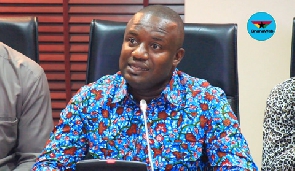Dr. Emmanuel Akwetey, Executive Director, Institute for Democratic Governance (IDEG), has urged the people of Ghana to repose trust and confidence in Ghana’s Electoral Commission (EC) ahead of the 2016 general elections.
He noted that public comments of lack of confidence in the Commission had dampened the “spirit” of the EC, “something the country needed desperately” for the 2016 elections.
Dr. Akwetey made the call at an IDEG/Civic Forum Initiative (CFI) two-day workshop for media practitioners on the theme, “Towards electoral reforms and the integrity of the 2016 elections.”
It had support from UNESCO and aimed at sensitising media practitioners on proposals by IDEG/CFI on multi-party governance reforms for peaceful elections in 2016.
Dr. Akwetey said though increasing population and technological advancement among others were posing challenges to the effectiveness of the EC, the Commission had played critical roles in the stability of the country in the past 22 years and must be supported by all to remain credible.
“We must all have confidence in the EC. It is a human institution and can make mistakes, so we must give it some space to work,” he stated.
Dr. Akwetey was hopeful that if electoral reforms were done along with multi-party governance reforms, the country’s electoral system could be much better and with renewed confidence in the system.
He said for instance “the devolution of monopolised power of the executive to local governments and assemblies through popular and party-based election of Metropolitan, Municipal and District Chief Executives would “open up” the “executive government space” and reduce tensions that characterised presidential elections.
Dr. Akwetey said elections were civil activities and that it was important for the citizenry to shun military language and allow relevant institutions to work.
He called for the strengthening of national interest institutions like the Civil Service, the Local Government Service, Public Service Commission and the Police to make them more “professional” and protect them from political party control.
Dr. Akwetey said the situation where the country was caught up in “perpetual” political campaigning with overloads of elections throughout the four-year tenure of governments should also be looked at to create space for political parties and governments to work towards addressing challenges in the country.
Mr. Kwesi Jonah, Senior Research Fellow, IDEG, said the reforms, if done would help restore confidence in the electoral system, build strong national cohesion institutions and promote accountability and transparency.
General News of Sunday, 9 November 2014
Source: GNA

















